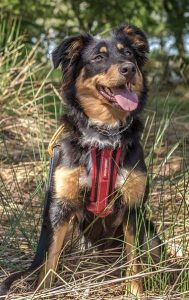 Back in March, CAGT launched a DNA test for progressive retinal atrophy (PRA) in the English Shepherd Dog breed (PRA6). Since then we have been working on a manuscript detailing our research and we are very pleased to announce that it was published last Sunday in Genes.
Back in March, CAGT launched a DNA test for progressive retinal atrophy (PRA) in the English Shepherd Dog breed (PRA6). Since then we have been working on a manuscript detailing our research and we are very pleased to announce that it was published last Sunday in Genes.
Stanbury K, Schofield EC, McLaughlin B, Forman OP, Mellersh CS. Exonic Short Interspersed Nuclear Element Insertion in FAM161A Is Associated with Autosomal Recessive Progressive Retinal Atrophy in the English Shepherd. Genes. 2024; 15(7):952. doi: 10.3390/genes15070952
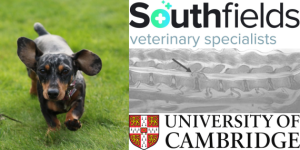 We have
We have  Hundreds of Beagles and their owners came together on Sunday 7th July at scenic
Hundreds of Beagles and their owners came together on Sunday 7th July at scenic  On 1st September, two teams will be heading to London to run the
On 1st September, two teams will be heading to London to run the 
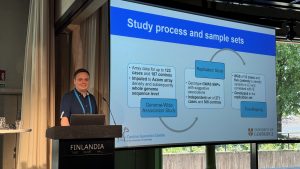 Last week five members of the Canine Genetics Centre (CGC) team visited Helsinki, Finland, to attend the
Last week five members of the Canine Genetics Centre (CGC) team visited Helsinki, Finland, to attend the 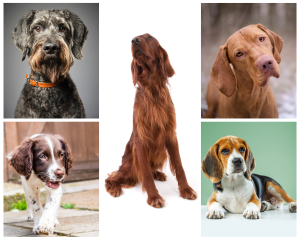
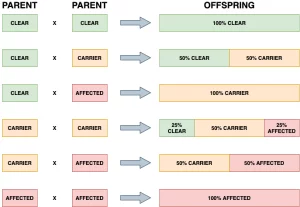
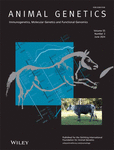 The Canine Genetics Centre has had an important study published, in collaboration with Wisdom Panel, on the genetics of progressive retinal atrophy in dogs. The paper describes the frequency of two genetics variants, called RPGRIP1ins44 and MAP9del, in 132 different breeds of dog. Both the variants were originally identified in Miniature Longhaired Dachshunds, and both are known to modify the development and progression of PRA.
The Canine Genetics Centre has had an important study published, in collaboration with Wisdom Panel, on the genetics of progressive retinal atrophy in dogs. The paper describes the frequency of two genetics variants, called RPGRIP1ins44 and MAP9del, in 132 different breeds of dog. Both the variants were originally identified in Miniature Longhaired Dachshunds, and both are known to modify the development and progression of PRA. 
